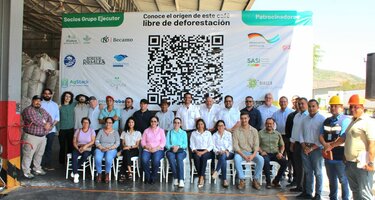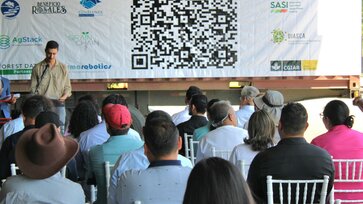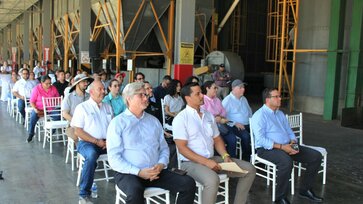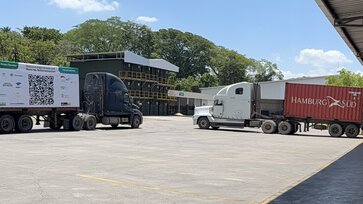A Shared Infrastructure for Traceable Coffee: Honduras Takes a Bold Step Toward EUDR Compliance
In May 2025, a container of traceable, deforestation-free coffee left Honduras, expected to reach Europe by late June. Behind it stands a broad alliance including CIAT, Becamo, IHCAFE, and GIZ. Local producers, beneficios and partners co-developed an open-source infrastructure that ensures EUDR compliance without excluding smallholders. The pilot sets the stage for more inclusive and transparent trade.
A Milestone Shipment from Honduras
In May 2025, Honduras marked a milestone on its journey toward deforestation-free trade: a 20.7-ton container of fully traceable coffee was shipped from the departments of Lempira and Santa Bárbara and is expected to reach a European port by the end of June. The beans will be processed and made available to European consumers - compliant with the European Union Deforestation Regulation (EUDR) and powered by a digital public infrastructure (DPI) prototype developed under the DIASCA project.
But this is more than just a shipment. It is the result of months of collaboration across continents, supply chain tiers, and sectors. The initiative began with fieldwork in early 2025, when teams from local cooperatives, exporters, and digital innovation partners worked side-by-side with smallholder coffee producers to map their farms, record production data, and issue QR-coded ID cards linked to unique GeoIDs. These IDs created a verifiable, farm-level digital footprint - connecting the land to the cup via open-source tools and shared protocols.
Partners and Processes on the Ground
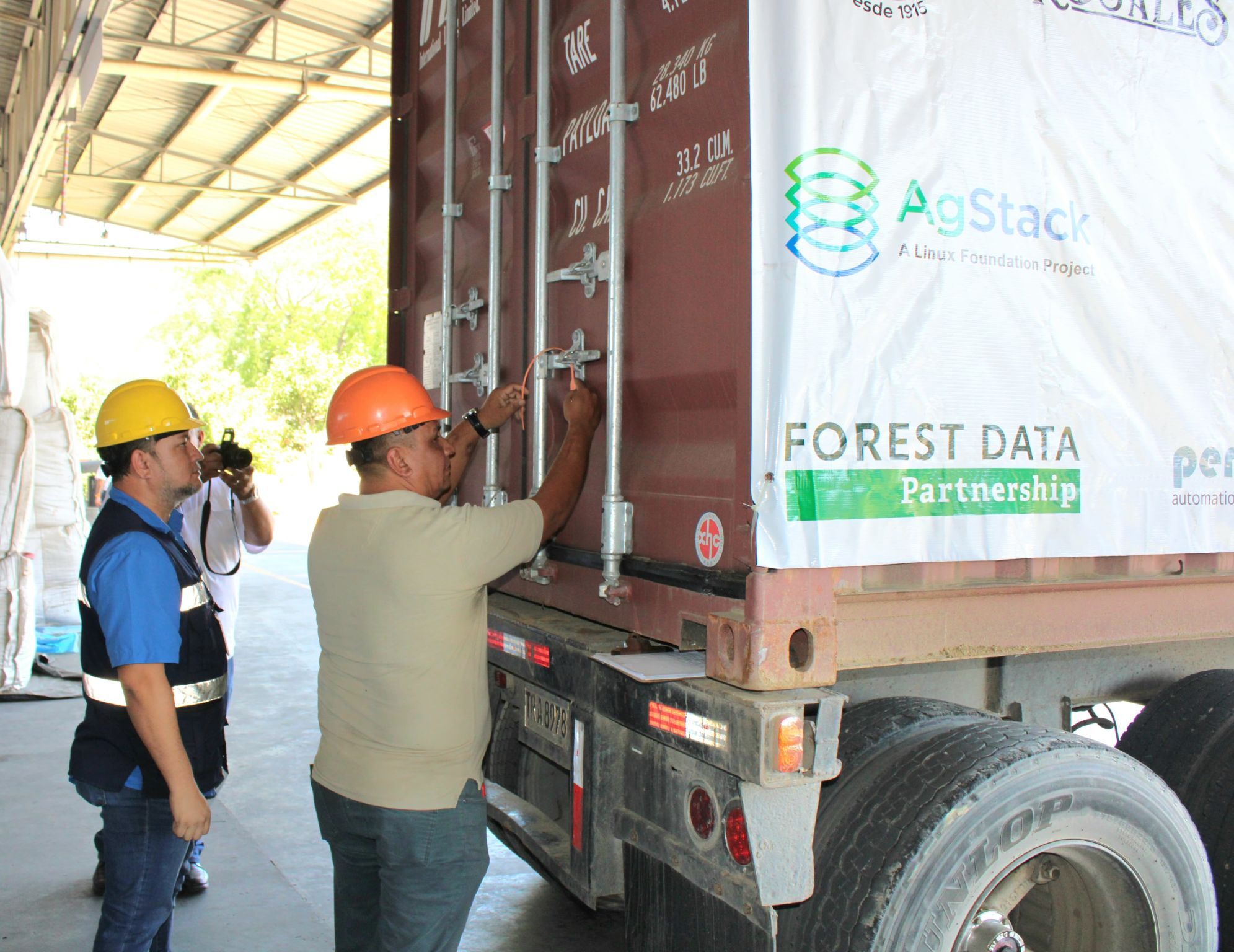
Two beneficio-level processing stations, Beneficio Rosales and Beneficio Río Frío, played a key role in aggregating and preparing the beans. In Honduras, these "beneficios" are local wet mills where coffee cherries are processed into parchment. Often overlooked in digital supply chain solutions, these facilities were fully integrated into the traceability infrastructure, helping ensure that data integrity was maintained from the moment the coffee left the farm.
The export was led by BECAMO (Beneficio de Café Montecristo), in partnership with a multi-stakeholder alliance that includes: IHCAFE, Confianza SA-FGR, GrainChain Inc., CIAT and the Alliance of Bioversity International, TechnoServe, GIZ Centroamérica, Permarobotics, and the open-source initiatives AgStack and TraceFoodChain. CIAT played a particularly important coordinating and technical role, contributing to the adaptation of the tools for the Honduran context and facilitating agreement between partners.
Open-Source Solutions for Smallholder Inclusion
An estimated 85% of Honduran coffee producers are at risk of exclusion from the EU market due to the lack of accessible traceability tools. The DIASCA prototype, developed as a public good, directly addresses this risk by offering a digital solution that is open-source, cost-effective, and designed for smallholders operating outside certified supply chains.
This initiative was set in motion nearly two years ago, shortly after the EUDR was announced. While the regulation was initially scheduled to come into force in January 2025, the EU has since granted a one-year transition period.
The digital platform is more than just a compliance tool. It enables smallholder farmers to retain control over their data, access financial services, and comply with evolving sustainability regulations. Crucially, the interoperability between different tools, like TraceFoodChain and OSapiens, showed that complex supply chains dominated by intermediaries can still achieve traceability without excluding the majority of producers. Farmer privacy and data ownership were safeguarded through the use of the Linux Foundation’s AgStack Asset Registry, which allows spatial data management while protecting farmer identities.
The platform was specifically adapted for conventional arabica producers who often operate outside of certified or fully mapped systems, helping them meet regulatory standards without costly investments. It also includes a mobile app that enables tracking even in areas without internet access. Coffee lots are georeferenced, either through polygon mapping for larger farms or single-point coordinates for smaller plots. Each farmer receives a QR-coded ID card that is scanned at delivery, ensuring traceability from field to port.
Field technician José Darío Enamorado from Beneficio Río Frío supported the farm-level geo-mapping and digital onboarding process, traveling to individual farms to validate location data and walk producers through the process.
Toward Scalable, Inclusive Trade
"Complying with the EUDR is not just about checking a box," said Ramon Medina, Co-CEO of BECAMO. "It’s about standing firm in our responsibility to protect nature and support the communities that have grown coffee for generations." As part of the coordination efforts, the team also traveled to Brussels to present the system to EU representatives, strengthening ties between Honduran producers and European institutions.
The initiative demonstrates that transparent, inclusive, and scalable compliance is possible when built on open standards, local capacity, and trust. The project also offers a replicable model for other coffee-producing countries that must meet the EUDR deadline by June 2026.
"We are gradually expanding the adoption of digital public infrastructure for the coffee sector in Honduras," said José Manuel Calero Moraga, Director of Sustainable Producer Services at BECAMO. "As more actors get involved, tools like this will become more widely known and adopted."
The project complements national efforts led by the Honduran Forest Conservation Institute (ICF) and IHCAFE to ensure broad EUDR compliance. The DIASCA approach, developed under SASI, provides a functioning, farmer-centric alternative that emphasizes transparency, interoperability, and inclusion.
Looking Ahead
The shipment, expected to arrive in Europe by the end of June, is just the beginning. DIASCA and its partners are now focusing on scale-up strategies to ensure that smallholders across Honduras - and beyond - are not left behind. The infrastructure opens new doors to access climate tools, land services, and finance while setting a blueprint for inclusive, resilient trade.
